Labor’s tougher anti-discrimination regime delayed
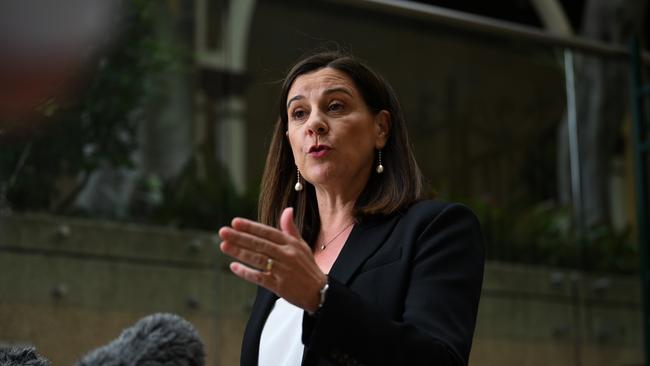
Free speech fight
Attorney-General Deb Frecklington has waded into a culture war, delaying indefinitely the Labor government’s eleventh-hour beefing-up of Queensland’s Anti-Discrimination Act.
Churches and the Australian Christian Lobby (ACL) immediately applauded Frecklington’s decision, saying the new laws could have prevented Christian teachings of the Bible on “marriage, gender and sexuality,” but Queensland Human Rights Commissioner Scott McDougall says he’s “bewildered” by the decision.
In the final sitting week of the Miles government, the Respect at Work Bill was passed, banning people from being discriminated against on the basis of homelessness, being a victim of domestic or family violence, sexual harrasment, potential pregnancy, irrelevant medical or criminal records, and on the basis of physical appearance such as weight or height.
It also strengthened the definition of sexual harassment in the workplace to include subjecting someone to a work environment that is hostile on the ground of sex, and made businesses responsible for proactively ensuring a workplace free of sexual harrassment.
The changes were due to come into effect on July 1 this year.
But on Friday, Frecklington told parliament she was honouring an election commitment to consult further on the legislative changes, and said her department and police had concerns about unintended consequences, such as people who had been charged with – but not convicted of – domestic violence offences being able to access weapons licences.
“Reforming discrimination law is a difficult and complex process that attracts significant stakeholder interest, which is why it should not have been rushed through by the former Labor government. I am extremely concerned with the prospect of some very serious unintended and unwanted consequences,” Frecklington told parliament.


Labor had already scrapped the most contentious elements of the bill, meaning religious schools could still refuse to hire gay or non-religious teachers and expel gay or transgender students.
But the ACL was still deeply worried about the legislation’s impact on free speech, and on Friday applauded Frecklington and Co. for “taking action to protect Christian churches, aged care facilities, schools and individuals” and warned the law could have been weaponised to “silence Christian beliefs … particularly on the issues of sexuality and gender identity”.
“(The Act) also imposed a positive duty on organisations to eliminate discrimination, sexual harassment, and harassment on the basis of ‘sex’ as far as possible,” ACL Queensland director Rob Norman says.
“This would have severely restricted the ability of religious institutions, organisations, and individuals to teach Biblical views on marriage, gender, and sexuality.”
Norman has previously raised concerns the laws could have meant a Christian school or church would have been deemed a “hostile work environment” if it asked its employees to live according to an “evangelical view of scripture” and questioned whether workers and bosses could have been punished for using employees’ incorrect pronouns.
But Working Women Queensland director Ellie Dalton says delaying the reforms means Queensland women “will continue to face discrimination and harassment without the legal protections they need and deserve”.
Human Rights commissioner McDougall says the changes - which he says would have protected more Queenslanders from discrimination - have already been extensively consulted on and he was blindsided by Frecklington’s move.
Former Labor Attorney-General Shannon Fentiman tells Chooks she can’t understand “why the LNP is standing in the way of protections for women at work, given that nearly every woman has reported experiencing sexual harassment in the workplace at some point in their lifetime”.
Fentiman suggested the government could solve the unintended consequences for weapons licences by delaying the introduction of the criminal history element only - while still protecting women at work with the rest of the reforms.
The reforms will be delayed indefinitely, until after consultation occurs.
Thin blue bottom line

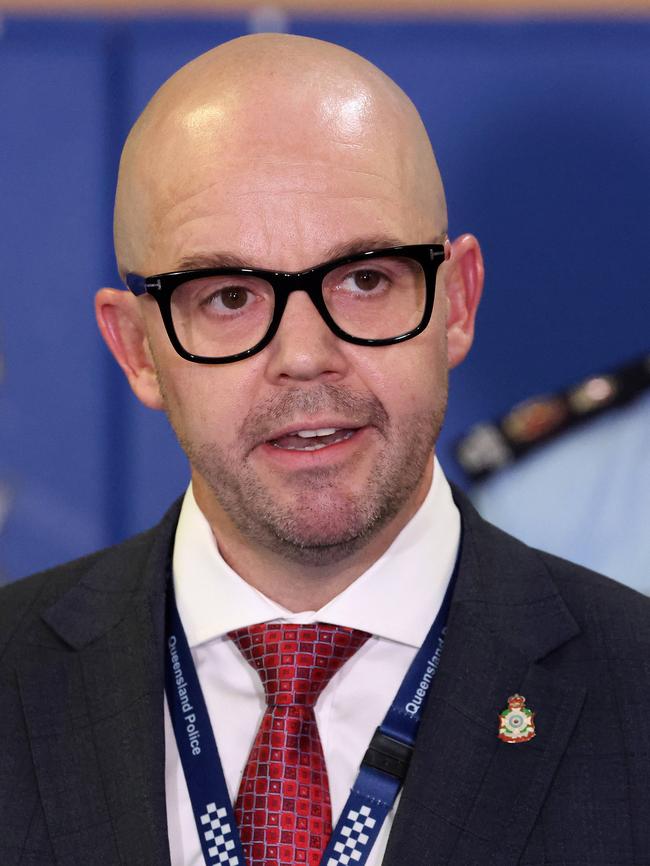
David Crisafulli rode a purported youth crime wave into power in October, talking tough about how he’d stem the tide he blamed on nine years of Labor.
“We are giving police the firepower they need to strike back against the generation of untouchables created under Labor’s watch,” the Queensland Premier thundered.
But cops on the beat are furious that Crisafulli’s promised “firepower” doesn’t extend to fair pay.
Chooks can reveal – and there’ll be more details in The Weekend Australian newspaper – that this week the state formally offered police, teachers, nurses and other public servants a three-year wage deal with pay increases of 3 per cent, 2.5 per cent and 2.5 per cent.
According to police union president Shane Prior, his members are already boiling with “very deep anger and resentment” at the opening gambit, which lags behind what interstate cops are being offered.
“It is commonly told to me that people have their resignation letters printed out, ready to go, waiting for the outcome of this EBA (enterprise bargaining agreement),” Prior tells Chooks.
Prior says police are burnt out – particularly by domestic and family violence incidents, which are on the rise. “They work a very hard job every single day, and they deserve a significant pay rise for their efforts,” he says.
“The government’s agenda is based on law and order … and in order to achieve the reduction in victim numbers, they’re going to need police on the frontline doing that very hard work they do every day,” he says.
During a televised election campaign debate, Crisafulli promised to quit if the number of crime victims did not fall during his first four-year term – an unachievable vow he later walked back on by insisting he was talking about per capita rates, rather than the raw numbers.
Watch this space.
Public sector unions will consider protected industrial action in schools and hospitals if the Crisafulli government doesn’t cough up a better deal, and soon.
Various turtles
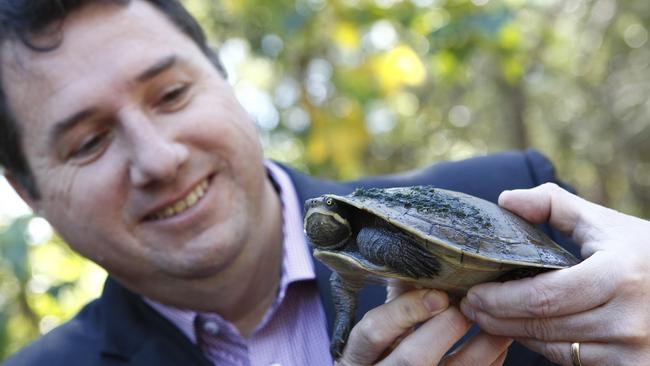
This week marked the Crisafulli government’s fourth parliamentary sitting since the October state election. And what was the first item of government legislative business on the agenda? Reptiles. And those who love them.
Over to Environment Minister Andrew Powell, who introduced the Nature Conservation and Other Legislation Amendment Bill, and declared one of its most important functions was pet licences. Would you believe that in 2024 alone, over 6000 licences were issued to allow Queenslanders to keep up to ten captive-bred native animals as pets?
As Powell intoned, at length: “This includes snakes, such as the children’s python; and a range of lizards, skinks, and geckos including the pink-tongued skink, the shingleback lizard, the bearded dragon and the velvet gecko. Various turtles, several species of frog and some native birds, including the king parrot and the rose-crowned fruit dove, can also be kept as pets.”
Without wishing to be rude (Chooks would never!), total government debt is forecast to hit $217.83bn by mid-2028, ratings agency S & P Global is warning Queensland is careening towards its first credit rating downgrade in 15 years, and we’re all waiting with bated breath for the Crisafulli government’s gold-medal winning solution to the Olympics infrastructure mess.
But first, lizard licences.
What happens in Vegas

You might recall that Gold Coast mayor Tom Tate was missing in action – playing the tables in Las Vegas – when Cyclone Alfred hit the glitter strip.
Last Friday, as the city was being whipped by the first lashes of the cyclone, his media advisers were spinning that he couldn’t find a flight back to Australia.
Not that the storm came out of thin (mostly hot) air.
The Bureau of Meteorology began warning of the potential threat that Cyclone Alfred would hit southern Queensland all the way back on February 25.
But the Gold Coast, which was battered, flooded and lost power for days, was ably led by its deputy mayor Donna Gates.
From all reports out of the state disaster management meetings, Gates impressed with her calm and clarity and then delivered the same at her daily press conferences informing the city’s residents.
Which makes it all the more bewildering is that Tate is going ahead with his plan to replace her next month.
Talk about thanks for covering.
In the first council meeting after being re-elected in 2024, Tate championed a motion to replace Gates with second-term councillor Mark Hammel this April.
It was called “regeneration”.
But now there are some serious questions being asked among councillors and staff about why Tate is sticking with the plan.
One Chooks spy noted that “it was weird when it first happened, putting a motion forward to replace a deputy mayor in a year’s time, no debate and five newbie councillors voting on it”.
“He wouldn’t get the support now, the majority of councillors would support Donna staying in the job.”
Tate is playing roulette with this one.
Left right out
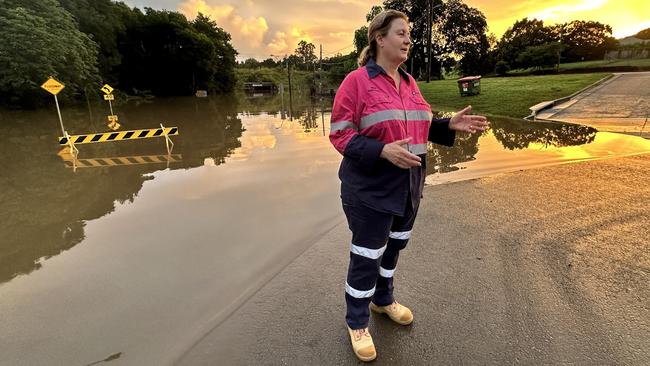
Ipswich mayor Teresa Harding must have felt like a fish out of water when her city was surrounded by flooding last week from Cyclone Alfred.
The second-term, directly-elected mayor of one of Australia’s fastest growing cities faces a hostile chamber, with the majority of her eight fellow councillors often voting as a bloc against her.
It’s well-known that the bloc tried to move a motion to gag her this year from speaking publicly on issues of the city, only to back down when the community blew up.
But Harding is also the only mayor in Queensland who was forcibly removed, again by the gaggle of councillors (some of whom want her job), from chairing the Local Government Disaster Management Group.
Former mayor Andrew Antoniolli, charged, convicted and then later acquitted on appeal over a bunch of fraud charges, is now the chair.
And he caused outrage among local Labor MPs – including Jen Howard – after calling a disaster group meeting to brief state and federal MPs over the city’s preparation as the waters were rising, and didn’t invite the mayor.
“The mayor should have been in that meeting, mayors are the people who get the high-level briefings from premiers and agencies,’’ Howard tells Chooks.
But Antoniolli is unrepentant and denies playing politics.
“I was giving them a briefing, I was entitled to call them and I didn’t want to waste time,” he says.
Spotted: double-booked

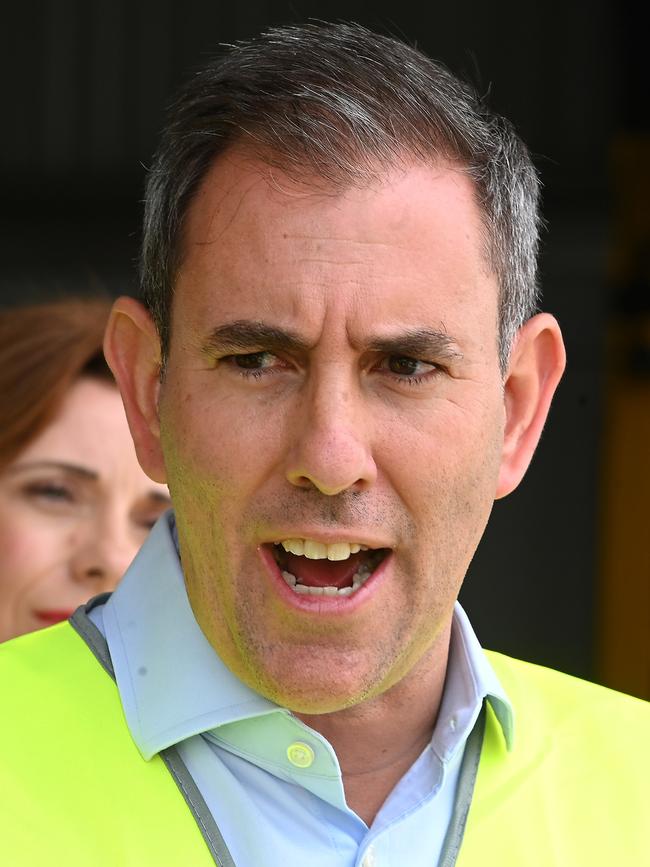
David Crisafulli will announce his long-awaited solution to the aforementioned Olympics infrastructure shemozzle on Tuesday March 25.
That’s the very same day as Jim Chalmers gets up in federal parliament to deliver the budget that Labor hopes to use as a springboard into the looming federal election campaign.
The not-so-secret report from the snappily named Games Independent Infrastructure and Co-ordination Authority (officially handed to the state government on March 8) recommends a new stadium at Victoria Park, contradicting Crisafulli’s election promise not to build one, anywhere.
Is the diary clash a case of the LNP government trying to slip the report through when Chooks and the rest of the media are focused on the action in Canberra? We think not. More likely, this is a case of a genuine cock-up, so to speak.
Crisafulli, like everyone else in Australia, could have been forgiven for believing a federal election would be called for April 12 before Cyclone Alfred got in the way, blowing away the need for a budget.
Feed the Chooks
Got a tip?

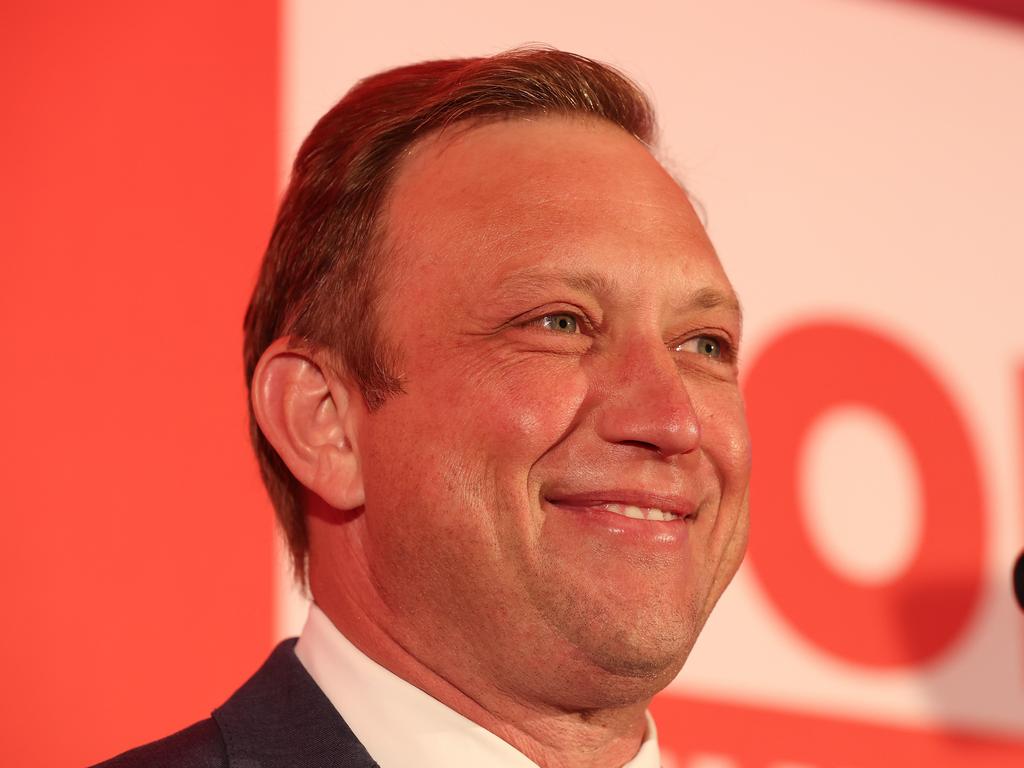

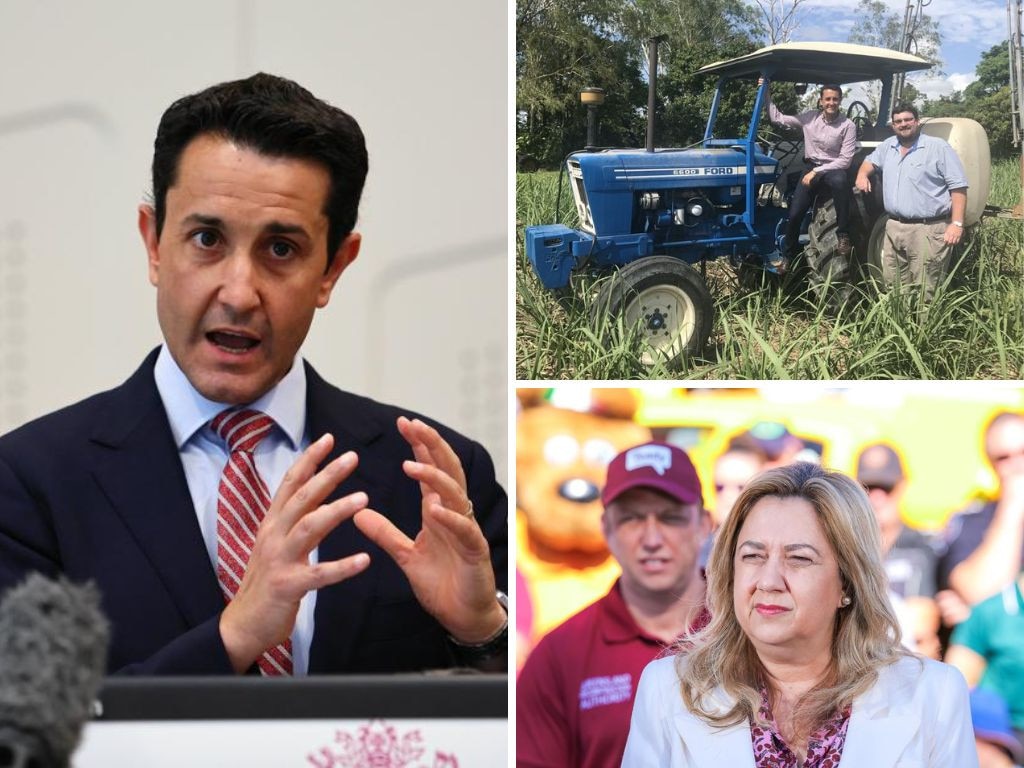


G’day readers and welcome back to Feeding the Chooks, your weekly insight into what’s really going on in Queensland politics.